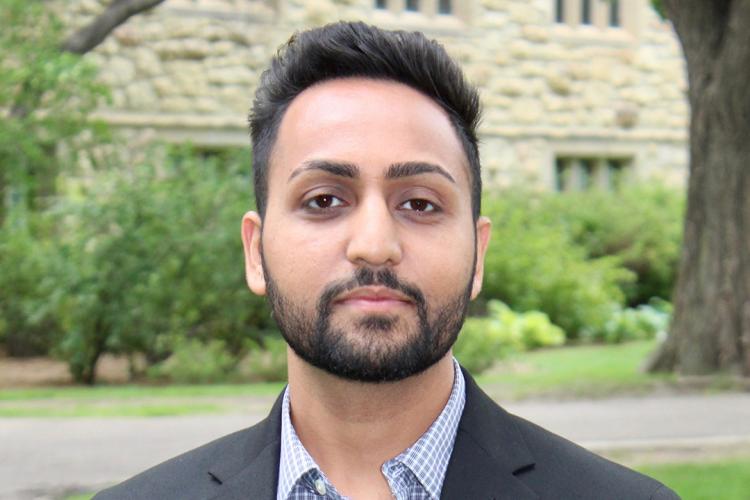By Jenna Fraser

Dr. Amrinderbir Singh (DMD), assistant professor of Dental Public Health, and director of Inclusive Community Care. (Photo: Submitted)
It's common to hear about people being afraid to go to the dentist. But for many individuals living in rural and remote Saskatchewan, a fear of the dentist is the least of their worries.
For these individuals, visiting a dentist is harder than most could ever imagine, due mainly to the fact that the closest dentist is at minimum a seven-hour drive away, and in some cases, individuals need to plan an overnight trip just to receive oral health care. This is something the College of Dentistry at the University of Saskatchewan (USask) is trying to change.
A part of the college's strategic plan is to become a leader in inclusive community care.
"Inclusivity to us means delivering holistic and culturally appropriate dental care to a wide variety of groups Indigenous Canadians, Elders, children, the LGBTQ community and to redress oral health inequities among the most marginalized and vulnerable in society," said Dr. Amrinderbir Singh (DMD), assistant professor of Dental Public Health, and director of Inclusive Community Care.
A key component to being a leader in inclusive community care is increasing access to dental services. Individuals in remote and rural communities in Saskatchewan often Indigenous populations don't visit the dentist because there isn't one in their community, and it's too difficult to travel to see one.
Working to address this gap, the College of Dentistry is establishing a network of clinics that serve priority populations through developing innovative inter-sectoral solutions. To date, the college has launched five dental clinics in defined priority communities: Cumberland House First Nation, Yellow Quill First Nation, Kinistin First Nation, La Loche, and the Saskatoon core neighbourhood.
"We are taking care to where it historically hasn't been."
Dr. Amrinderbir Singh
The college works with community partners to determine the schedules for the clinics that run all year long. The schedule is based on what the need is in each community, how often the dentist is available to visit, and housing arrangements for the dental team.
Due to COVID-19, there has been some disruption in the delivery of dental care. However, the operation of most of these clinics is continuing with new infection prevention and control protocols in place, following the guidelines set out by the College of Dental Surgeons of Saskatchewan.
For Singh, an important consideration is providing rural and remote clinical care in a culturally appropriate manner, and gives the dental teams local and regional orientation, background and training.
"We are exploring the Indigenous ways of knowing, constantly engaging the communities to understand their needs of care and to deliver effective and appropriate care," he said.
Singh said the college has future plans to expand this network of clinics.
"Community readiness is important, and then there is broader intersectoral collaboration that is required to put the vision into action," he said. "These clinics are only possible through collaboration."
The college wants to ensure that when it opens a new clinic, it is sustainable and able to provide care long-term.
"The sustainability and the consistency of the services we provide is one thing I'm proud of," Singh said. "We are taking care to where it historically hasn't been."










